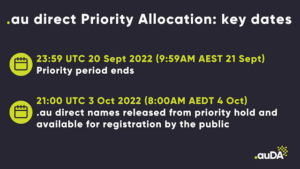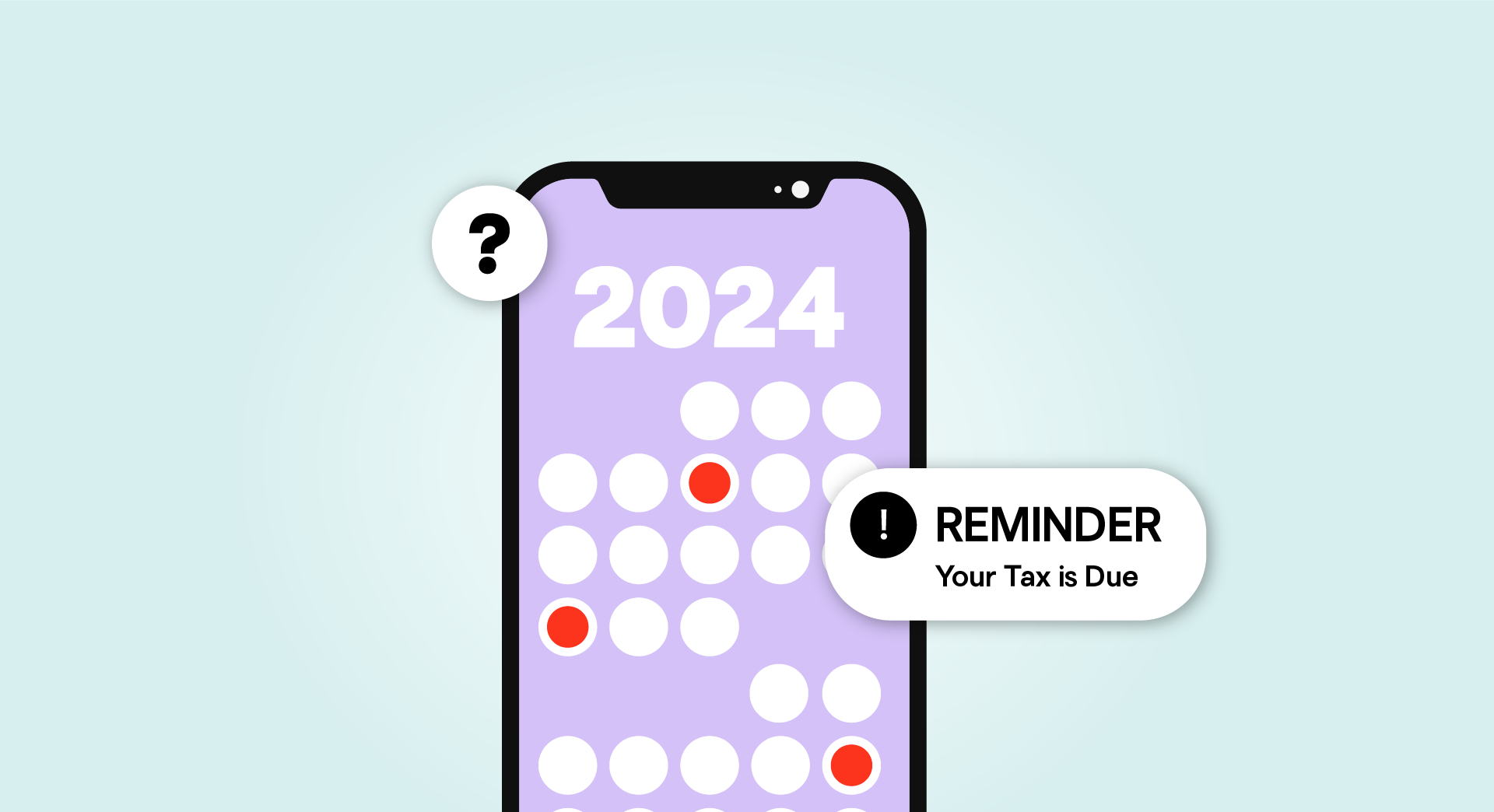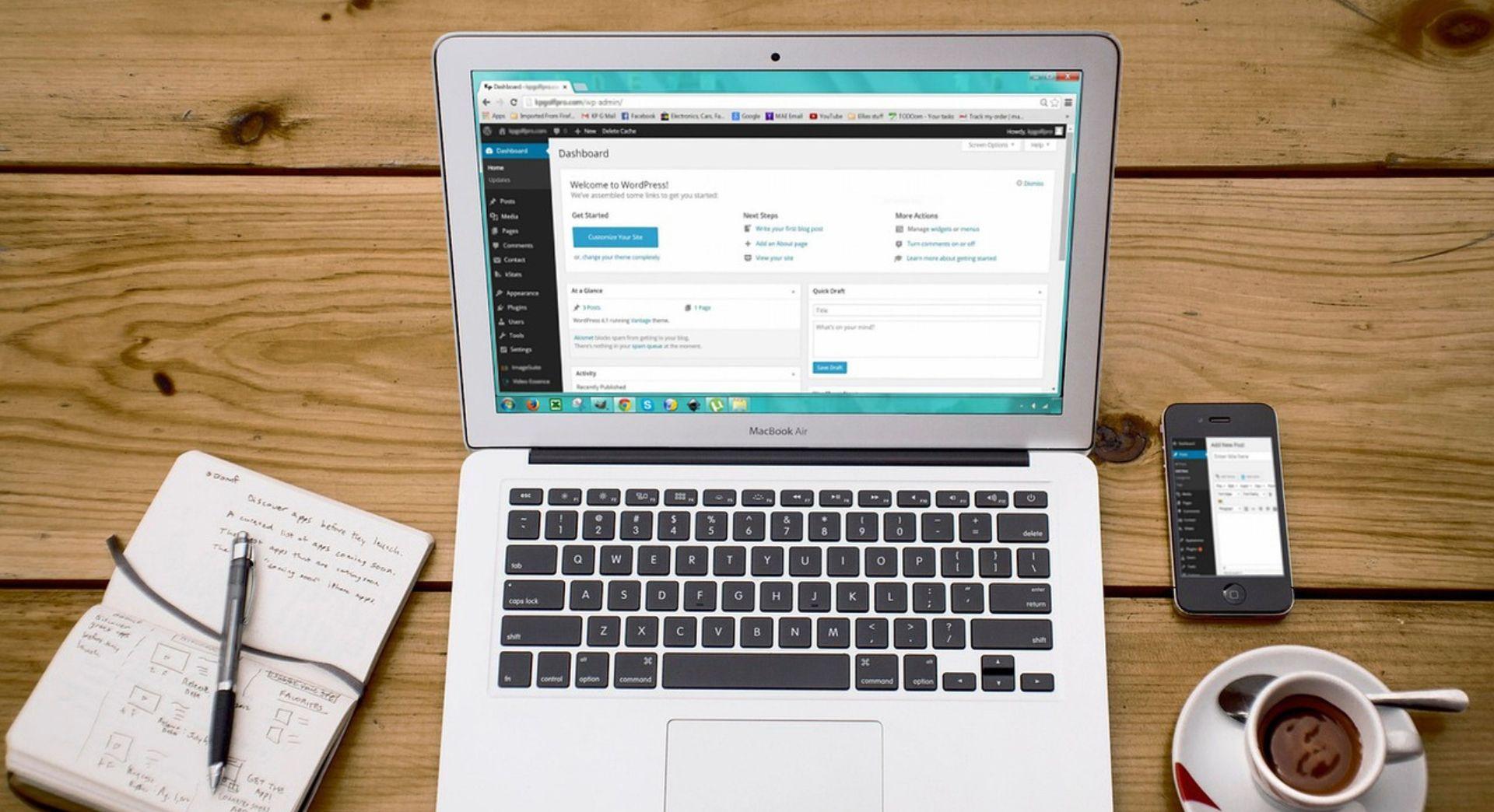As a small business owner or entrepreneur, you’ve probably invested a lot of time and money in building your business.
Building a brand is a key part of setting up for small business success. When you’re trading online, that means you need to create a digital identity. Registering your website domain name is the foundation of a solid and secure digital identity.
The right domain name can help your business stand out from the crowd.
Since March, Australian businesses with website addresses ending in .com.au, .net.au or .org.au have had priority access to the matching domain ending in the new .au direct extension.
However in just a few short weeks, on 20 September 2022, the priority registration process for existing domain name owners closes. From 4 October 2022, all .au domain names become open to the general public to purchase.
Related: A beginner’s guide to an awesome brand identity
What does this mean for my business? 
This is a great opportunity for businesses to embrace the new, shorter and distinctly Aussie .au domain name extension.
Giving this opportunity a pass presents a potential risk to your businesses’ digital identity.
Just like you wouldn’t want a rival shop with the same name as yours setting up next door, you wouldn’t want someone else to take your .au domain name. There’s simply too great a risk that it could cause customer confusion.
If your business web address is SyndeySights.com.au, anyone could claim SydneySights.au from 4 October 2022 if you don’t get it first.
Both the Australian Government’s cyber watchdog and the Australian Small Business and Family Enterprise Ombudsman have recently warned businesses the new domain name extensions present an opportunity for imposters and cyber criminals to target Aussie businesses.
What’s the risk?
The Australian Cyber Security Centre’s (ACSC) recent bulletin recommends Australian business owners consider claiming their matching .au domain name before the September priority access period expires to minimise the risk of fraudulent activity.
“This new option for domain names creates opportunities for businesses, organisations and individuals, however, could also provide another opportunity for cybercriminals, such as by facilitating fraudulent activity business email compromise,’’ the ACSC warned in August.
“For example, by registering yourbusiness.au where you have already registered yourbusiness.com.au in order to impersonate your business.
“Businesses, organisations and individuals who have registered a domain name outside of Australia can also consider registering an .au direct domain name.
“For example, a business that currently holds MyBusiness.com should consider registering MyBusiness.au. This will prevent cybercriminals from registering these domain names in the future and using them for attempted financial fraud.”
Claim your .au domain now
What could happen if someone else takes my .au name?
Bruce Billson, the Australian Small Business and Family Enterprise Ombudsman has urged Aussie entrepreneurs to take note of the approaching deadline or risk potentially significant consequences through a loss of customer base or cybercrime.
“I implore all small business owners to take a few minutes to work out if they want the shortened .au domain or will be unhappy for someone else to have it,” Mr. Billson said earlier this month.

“If you want it, small business owners, I urge you to take a few minutes and few dollars to register it or potentially face someone else grabbing it and using it to digitally ambush your business, to demand big dollars later to surrender it to you, or misuse it to masquerade as you or to help them engage in cyber-crime.”
Mr Billson said a domain name is a businesses’ key digital asset.
“The consequences of not registering your existing business name by this deadline could be catastrophic for a business if a rival or someone else took their online name,’’ he said.
“Domain names are very much the identity of a business and critical to their success. Small businesses cannot afford to have their identity sold to someone else.
“This is like cutting a second set of keys to your front door and selling them to a rival, a stranger who tries to sell them back to you at a higher price or a criminal who uses them to rip off your customers.”
How does it work?

The auDA, the domain administrator of all Australia’s country code domains, says there are more than 3.6 million domains registered with an extension that ends in .au. That means there are potentially millions of businesses or individuals who are entitled to apply for the new shorter extension.
Under the auDA’s rollout plan, if you hold a .com.au, .net.au or .org.au and created it before 24 March 2022, you can still apply for its exact .au match.
It has put on hold the exact matches of existing names until the priority access period expires on 20 September 2022 to prevent them being registered by others.
In cases where there is more than one applicant, the auDA says priority allocation will help to determine who is able to register the .au equivalent.
From 20 September 2022, anyone can register any available .au address.
So, if you already have a website address with a .au extension, now is the time to think about whether you want to secure its .au equivalent before the clock runs out on the priority access period.
To find out more about a .au extension, see GoDaddy’s domain name guide here.
Note: AUda has a dispute resolution policy for those who believe they are entitled to a particular .au domain name that has been registered by someone else.






